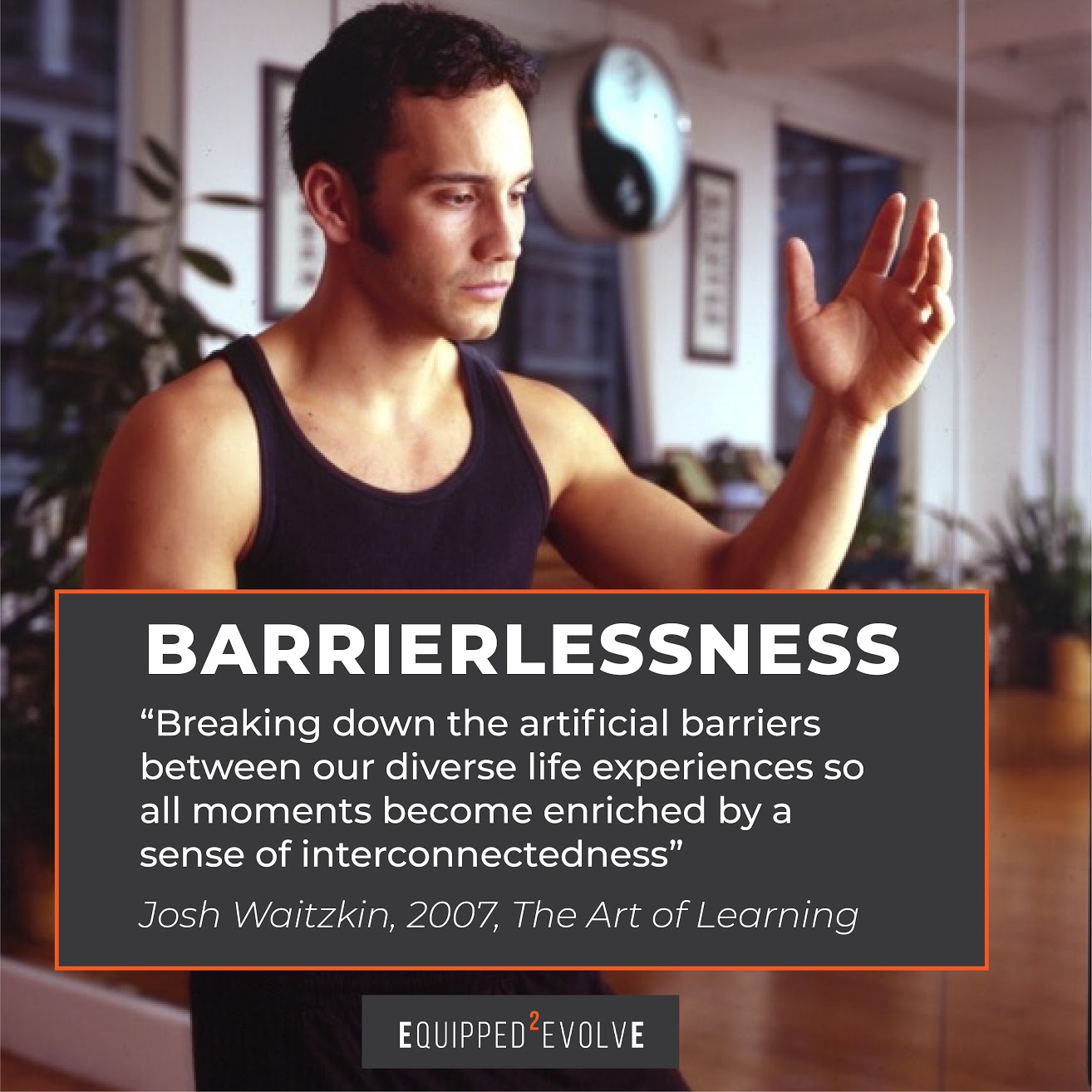During part 2 of Break-Through Mindset Shifts, I wrote about the importance of cultivating and practicing the skill of pattern recognition. Pattern recognition is actually a sub-skill of what Joshua Waitzkin calls “barrierlessness.”
“Breaking down the artificial barriers between our diverse life experiences so all moments become enriched by a sense of interconnectedness.”
Joshua Waitzkin, The Art of Learning
“Work-life balance” is an example of a mindset that actually undermines the skill of barrierlessness. “Work-life balance” suggests a kind of artificial separation between who you are at work and who you are outside of work.
You don’t have a personal AND a professional life, you have A LIFE.
John Cundiff
When you think in terms of “work-life balance,” you limit yourself from the types of insights and growth that come from living a more integrated life.
While the technical skills of your professional life may not be very relevant in your personal life, the mental skills of your professional life certainly are. For example, first, consider how your energy, thoughts, and attention affect you when you are at work, then, consider how your energy, thoughts, and attention affect you in different contexts outside of work. What commonalities and patterns do you observe between your professional and personal environments?
With this knowledge, you end up realizing that there is always time to practice getting better because what you behaviorally improve upon in your home life can transfer to your work life and vice versa… IF YOU ARE CONSCIOUS OF DOING SO, i.e., skill transfer is much less likely to happen if you do not will it to do so.
Moreover, barrierlessness helps us to better utilize analogies and metaphors to nurture the confidence needed to tackle challenges that seem outside our scope of capabilities. Through the lens of barrierlessness, we are actually much more qualified for a diversity of skills than we might otherwise believe if compared to what is on our résumé.
If this concept of transferable learning and application is new to you, begin cultivating this skill by considering how you can take an experience from last Tuesday and apply it to an unexpected and unrelated experience next Thursday.
There are always through-lines of takeaways that can act as valuable reference points to guide you forward in future scenarios that might, at first glance, seem contextually unrelated because the content is so different.
Ironically, given that the content is so different between, say, electrical engineering and parenting, the context of managing one’s emotions and overcoming obstacles when under pressure is actually what is shared amongst both environments.
Instead of being overwhelmed by needing to learn how to master managing your emotions when under pressure as a parent AND as an electrical engineer, see the different environments as complementary and as extra reinforcement for how to better nurture the kinds of skills that support advancing your wellbeing and performance.




